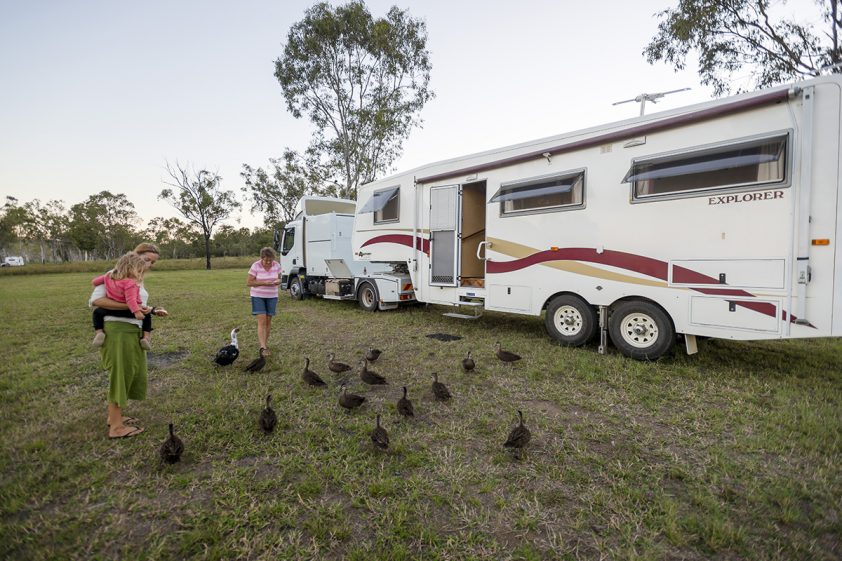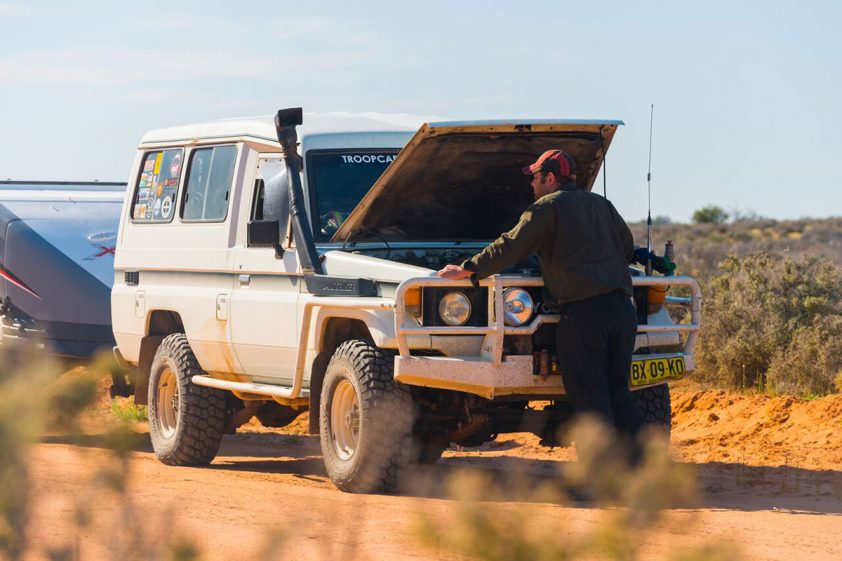Years ago while travelling through Far North Queensland, I took a call from my elder sister who was desperate to escape her city lifestyle. Doing what any good sibling does, I suggested that a few months on the road with us might be the perfect break for her.
It was. She managed to turn her life around but not before she gave ours a bit of a shake up, too! More than any trip I’ve tackled since, those two months with my sister on board taught me valuable lessons about sharing small spaces, voicing expectations (and biting my tongue), and not being afraid to say no – even to scary older sisters.
For long-term travellers, it can be fun to have a fresh, albeit familiar, face on board, to share your lifestyle with. But in order to survive the drive, here are my top tips for enjoying any road trip with your relatives or close friends on board.
1. SET BOUNDARIES

Caravans and RVs have lots of clever nooks and crannies to house and hide all kinds of possessions and it’s only natural for visitors to be curious about what is stored, where
This means that the vast majority of your treasures are accessible to everyone and you may be horrified to have your guest opening cupboards in search of the sugar, only to unearth more private items.
To avoid this, show your new guest where everything they’ll need is kept at the outset, then point out those cupboards or storage areas that contain your personal effects. A simple “You won’t need to go into those two cupboards, they just contain our things,” should do the trick. Alternatively, consider shifting a few things around so that your personal gear is out of sight.
2. RESPECT PRIVACY
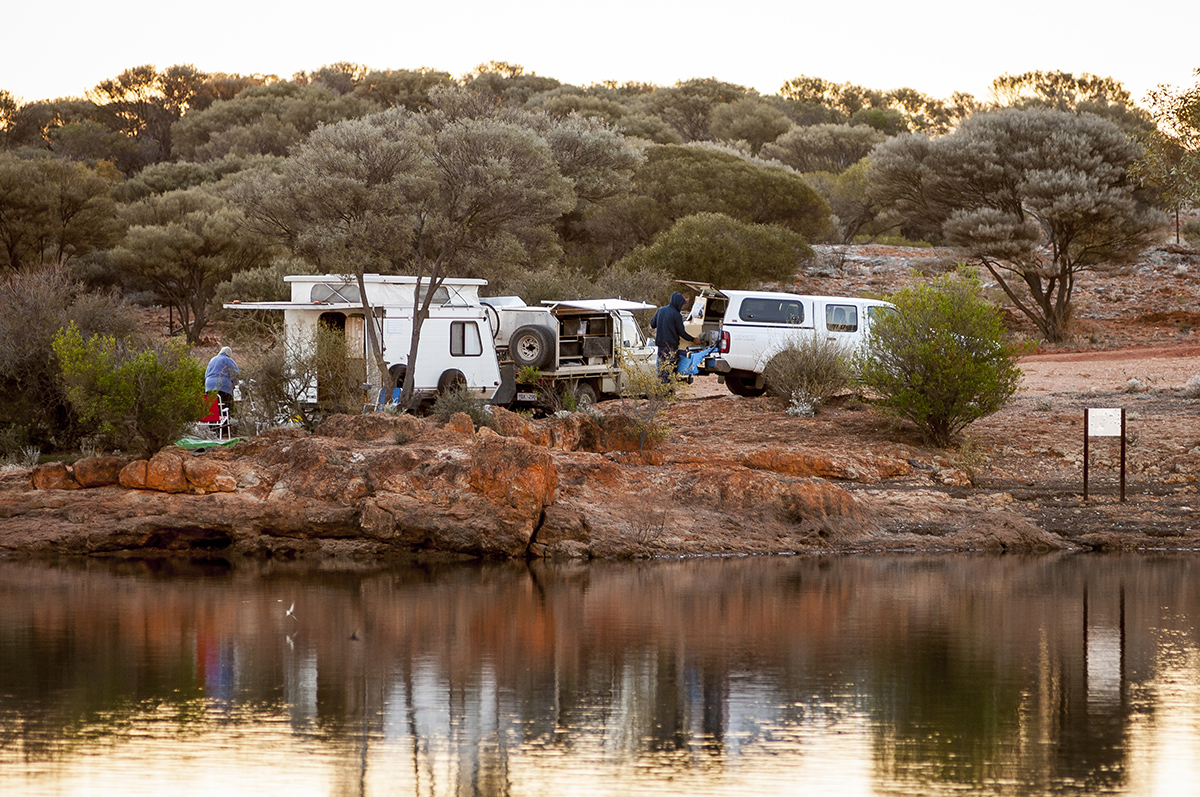
You probably wouldn’t be accommodating a guest that you didn’t feel comfortable with. But how does your wife feel about sharing her space with your brother? And ladies, how does your husband feel about waking up to find his mother-in-law in her dressing gown, making a morning cuppa in his rig?
Before you sign up for the relative-in-the-rig experiment, it’s worth considering how you will feel about sleeping, waking and showering in close confines with another person, who will also observe your personal habits, conservations and maybe even a marital tiff, too!
Our campervan had only sleeping space for two, so each night, we made my sister comfortable in our hiking tent, with a camp mat, doona and pillows. This meant we were all able to maintain some privacy, and she relished this new camping experience.
You may not get away with sticking your mother-in-law in a tent, but you might want to coax your hubby into wearing pyjamas and take your morning cuppas outside to give each a turn showering and changing inside.
If your guest is not accustomed to caravan life, holiday park stays simplify things and might make them feel more comfortable.
3. PLAN THE JOURNEY TOGETHER
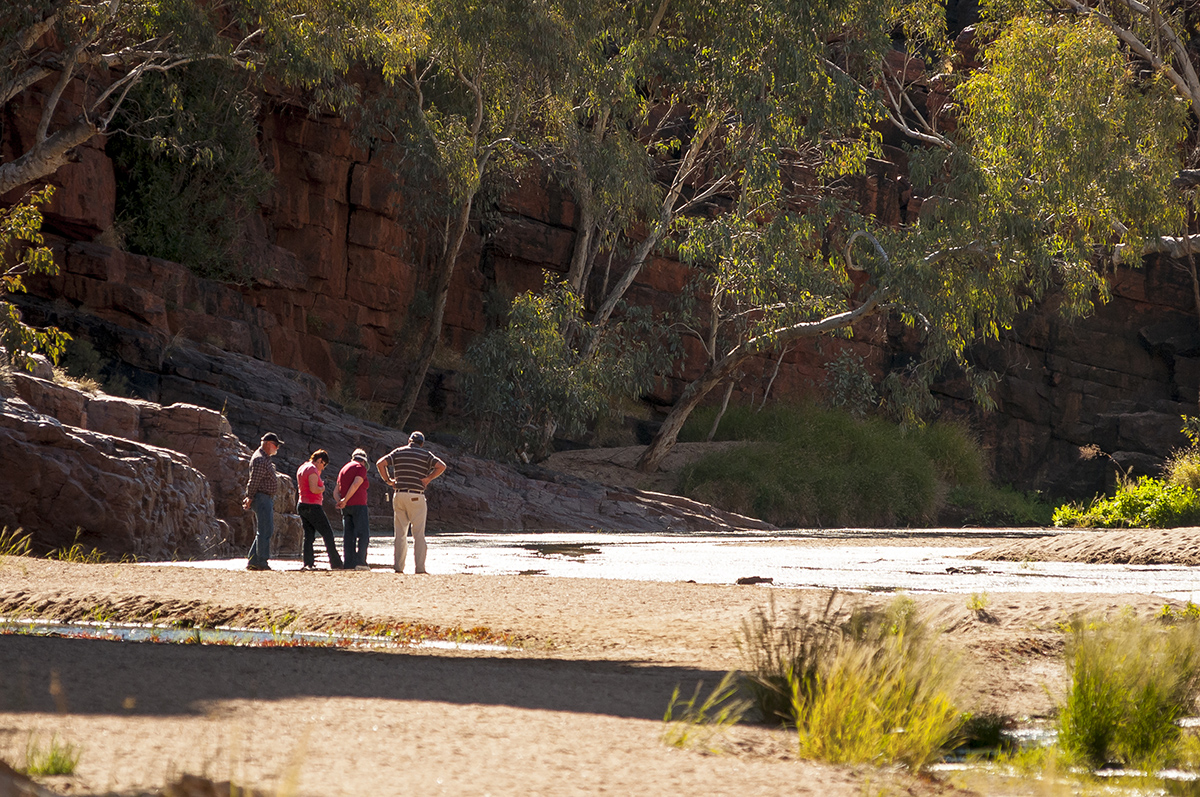
If you have invited your guest along on a specific leg of your journey, discuss a general itinerary with them before setting out.
Plan a rough route that includes the places you would all like to visit, with time to do the activities you each enjoy. Make sure you know what your guest is really hoping to see or do and make allowances for the fact that while you and yours may be avid anglers, your guest might prefer a quiet beach walk, or to spend a few hours at a museum, shopping or enjoying a coffee and a book.
4. BE CLEAR ABOUT MONEY
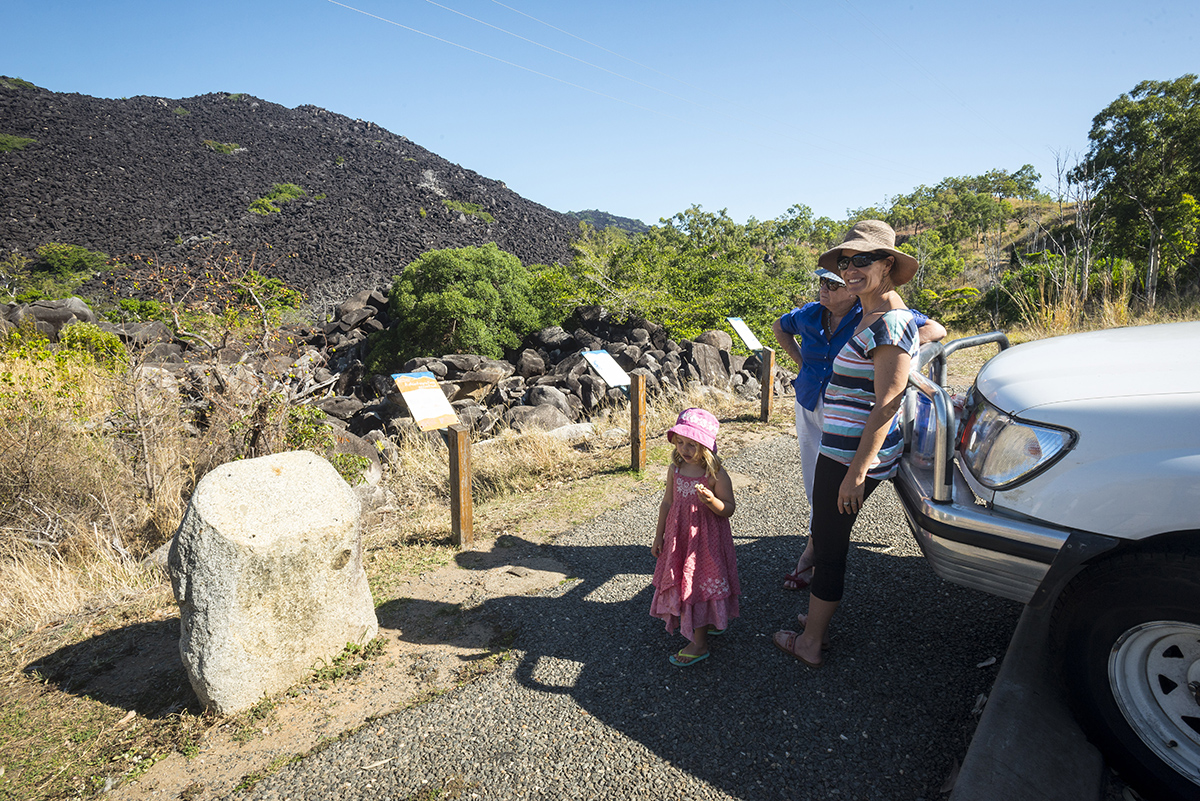
How you cover the costs of your trip will probably depend on your relationship with your guest, and how long they are staying with you. Regardless of whether you are treating your guest to a holiday, or expect them to contribute to daily expenses, make this known upfront so that everyone is comfortable.
Consider how your differing lifestyles might affect a joint budget, too. I remember watching on with horror as my elder sister loaded up our shopping trolley with her choice of gourmet produce –things that we considered treats on our beer-budget road trip. Simply point out that by keeping your food and other bills to a minimum, and enjoying simple camp fare, you can afford other pleasures, such as the occasional meal out together and entry to tourist attractions, etc.
5. MAKE THEM FEEL AT HOME
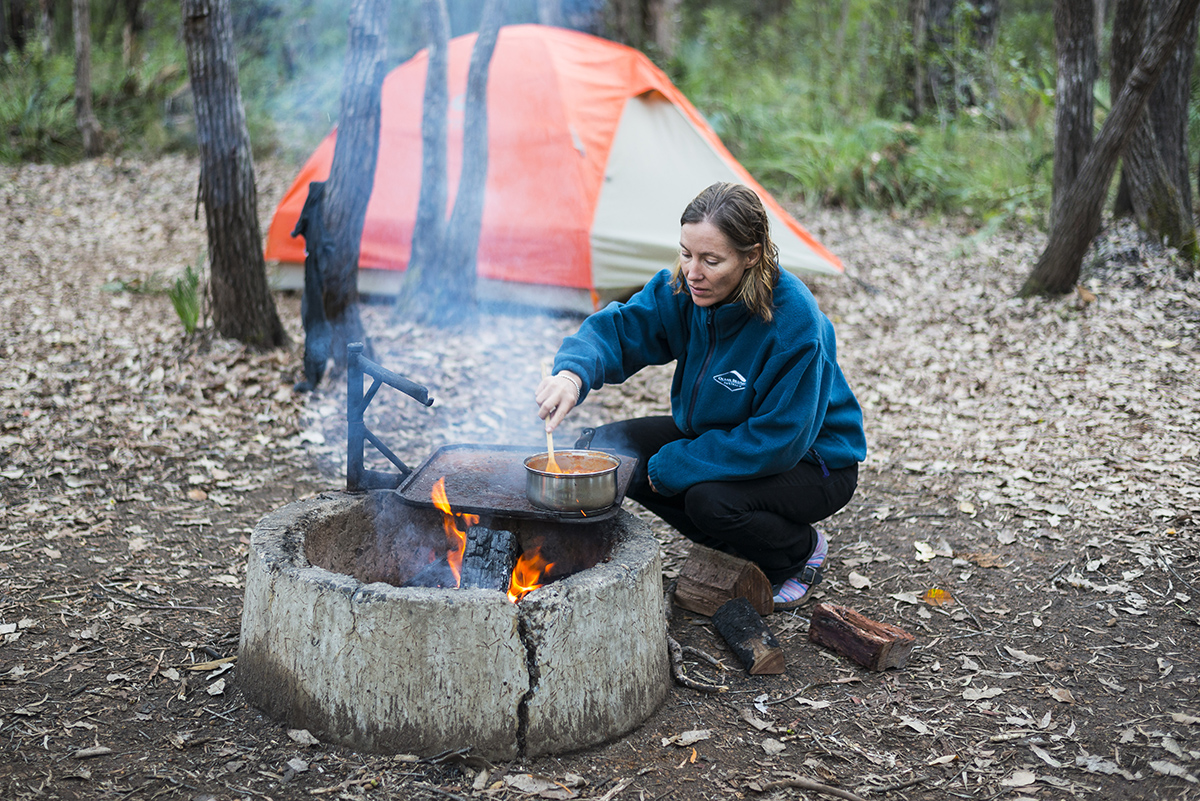
A caravan or motorhome is an intimate space, regardless of size. To make sure that your guest feels at home, don’t forget to allocate them some personal and cupboard space. Have some of their favourite foods and drinks on board and consider assembling a welcoming gift of camping essentials, such as a small torch, a pair of funny shower thongs, some insect repellent and a guidebook to the area that you are travelling through. Buy your guest his or her own camping chair, too.
6. GOOD COMMUNICATION
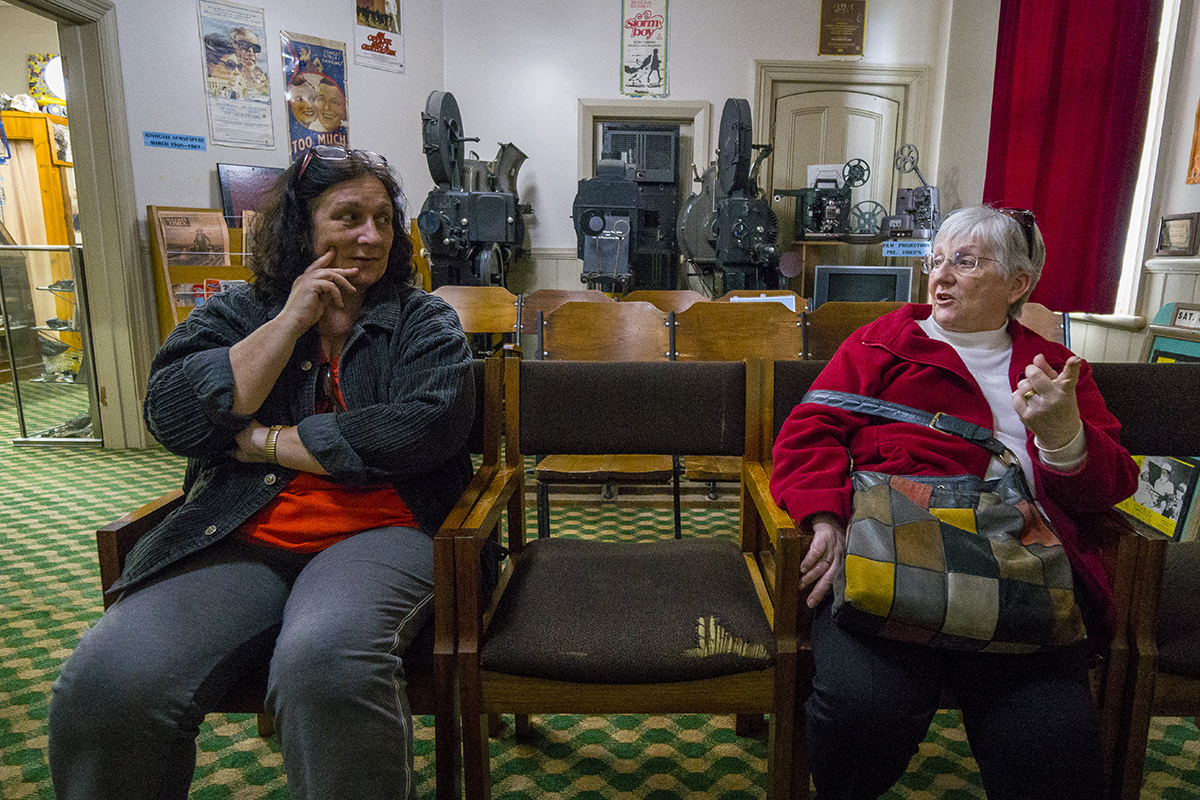
If the van walls are closing in on you, or you find yourself climbing them, it’s probably time to speak your mind. It’s always nicer if the holiday ends before you reach this stage, but if something is really bugging you, your guest probably won’t be fooled by your smiling pretence.
A gentle chat, one-on-one, is the best way to clear the air, and if possible, nip the issue in the bud before it escalates into something major. If your guest is staying long-term, don’t be afraid to suggest ways that they can help out. They may be standing on the sidelines because they don’t know how to work the stove or set up camp.
Once we showed my sister what wood to collect, how to use an axe and then build the campfire, you couldn’t keep her away from the task. All she needed was a little instruction.
MEET THE AUTHOR
Catherine Lawson
It’s been over 20 years since Catherine tackled her first Aussie Big Lap and she’s been recounting her travel tales ever since, working mostly with her partner, photographer David Bristow. The couple’s first book – Highway One, the Ultimate Australian Road Trip – was published in 2012.
With a background in journalism, magazine editing and as a newspaper manager, it’s long been the outback office that Catherine enjoys best. And when not exploring some dusty outback track, Catherine and her family live aboard a sailing catamaran in Cairns.
PHOTOGRAPHY: David Bristow

